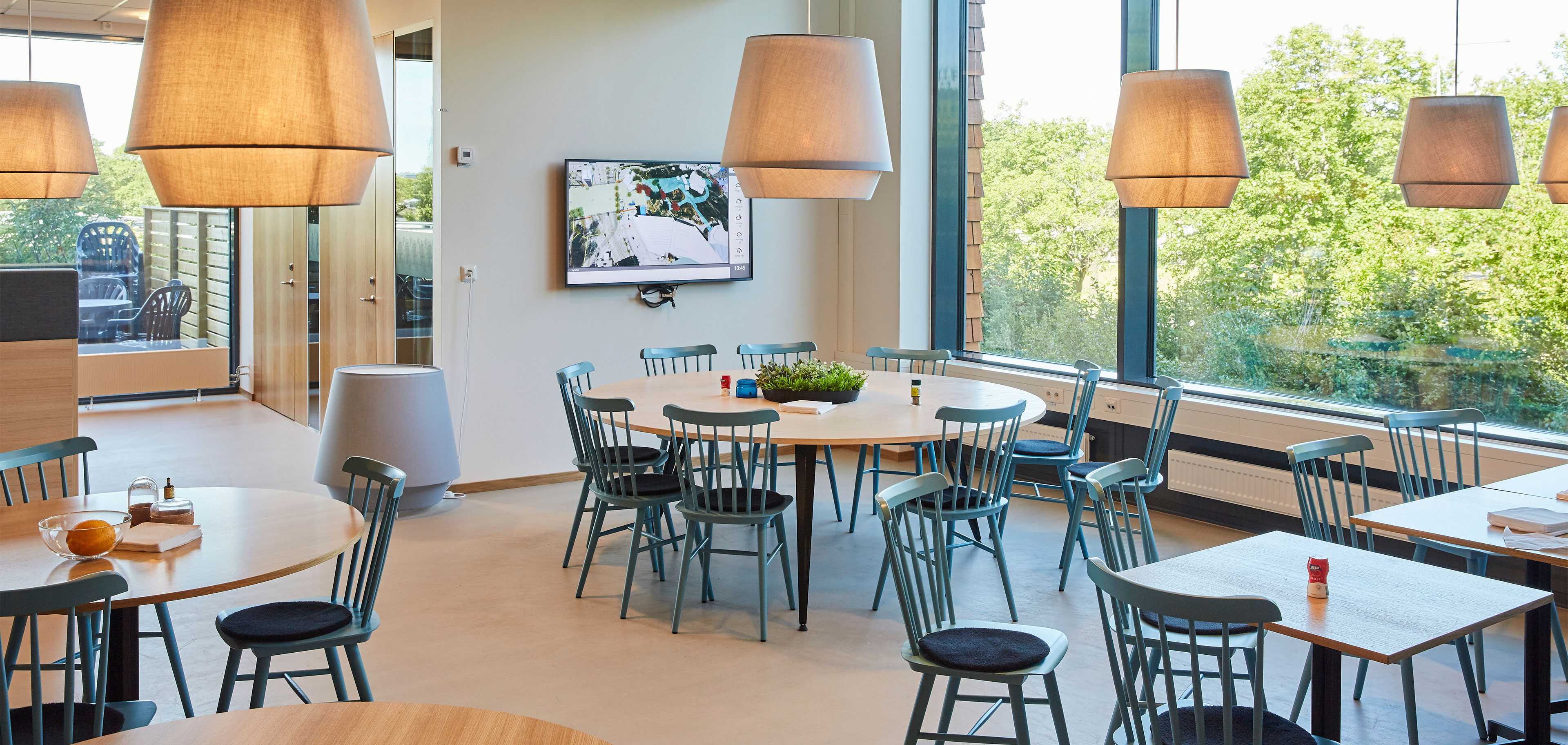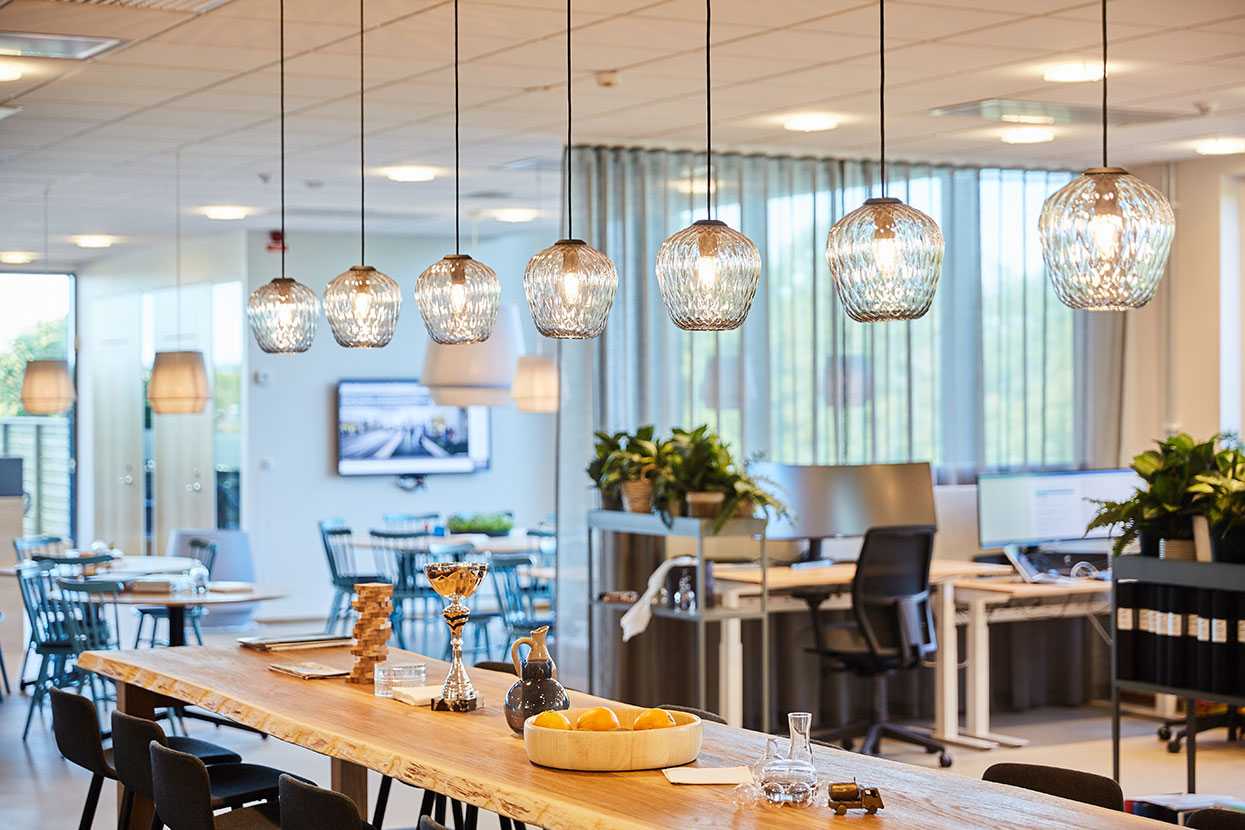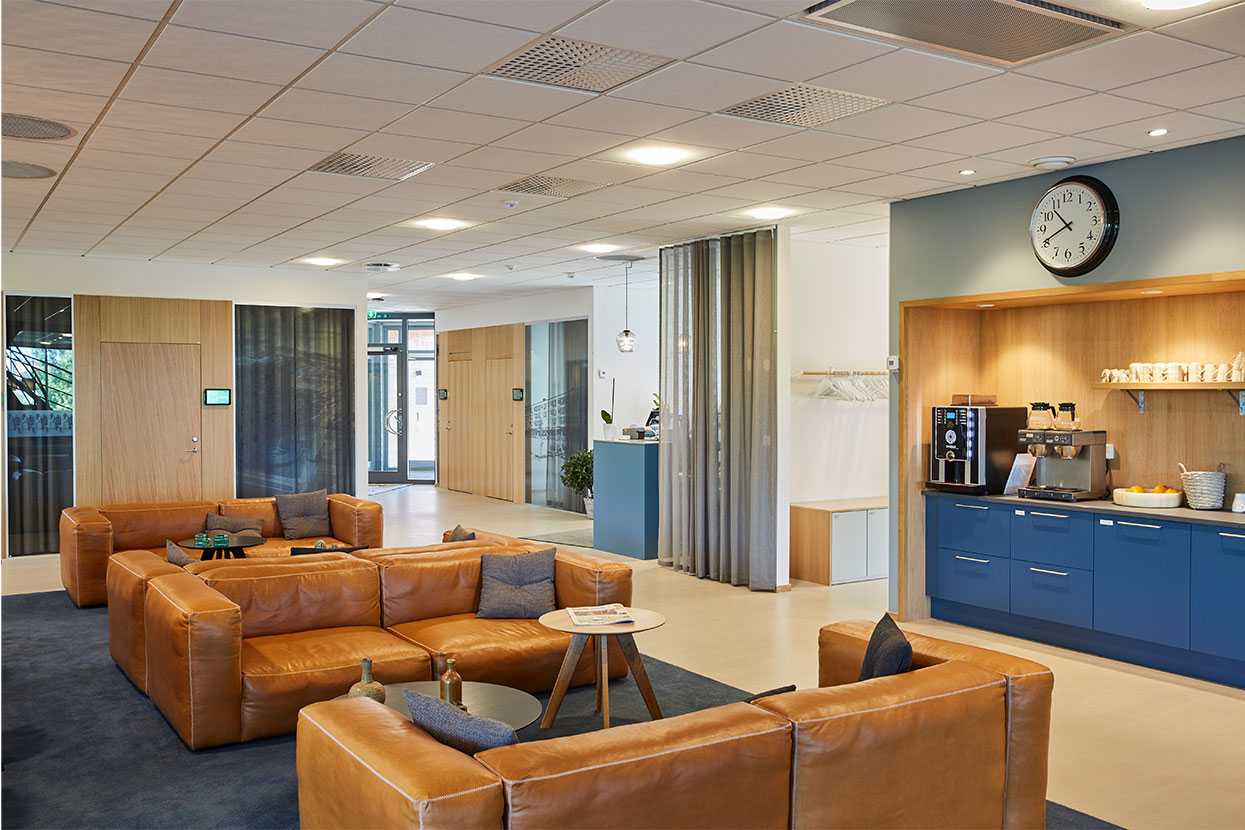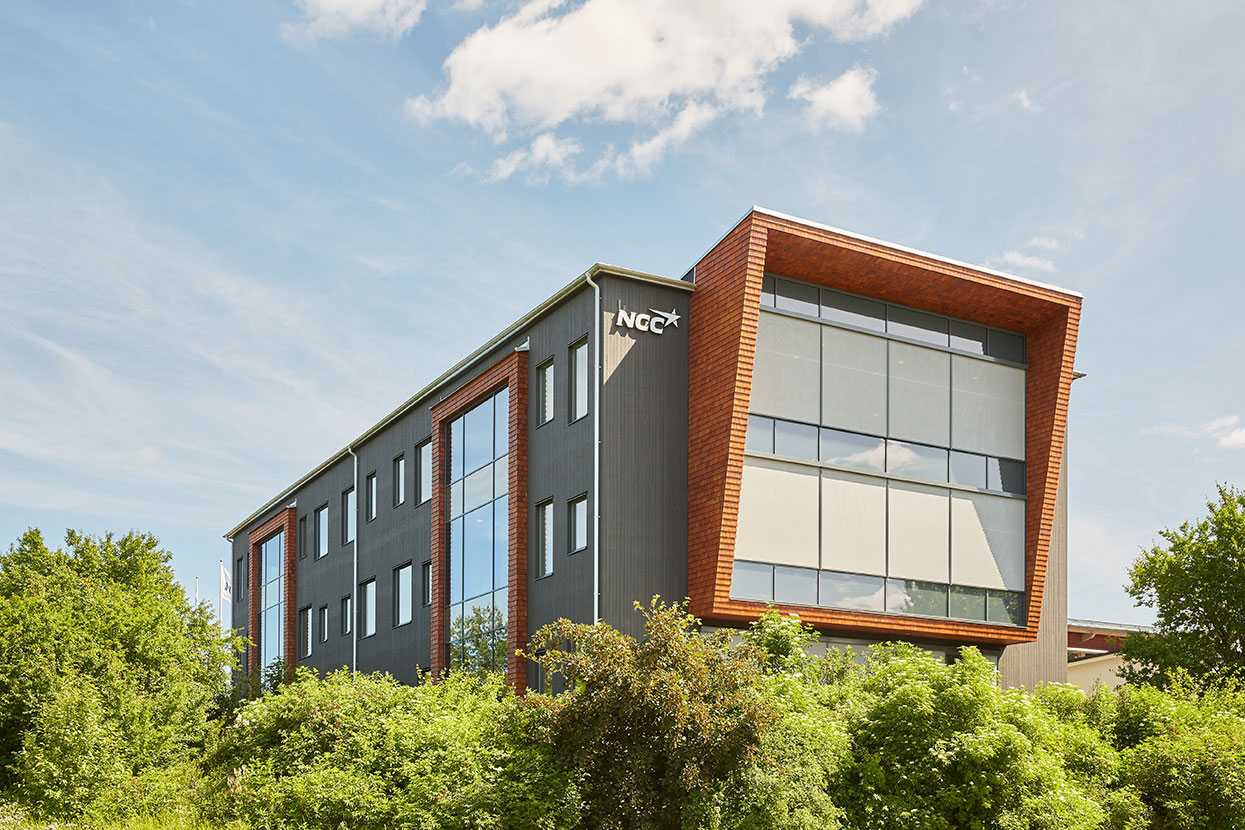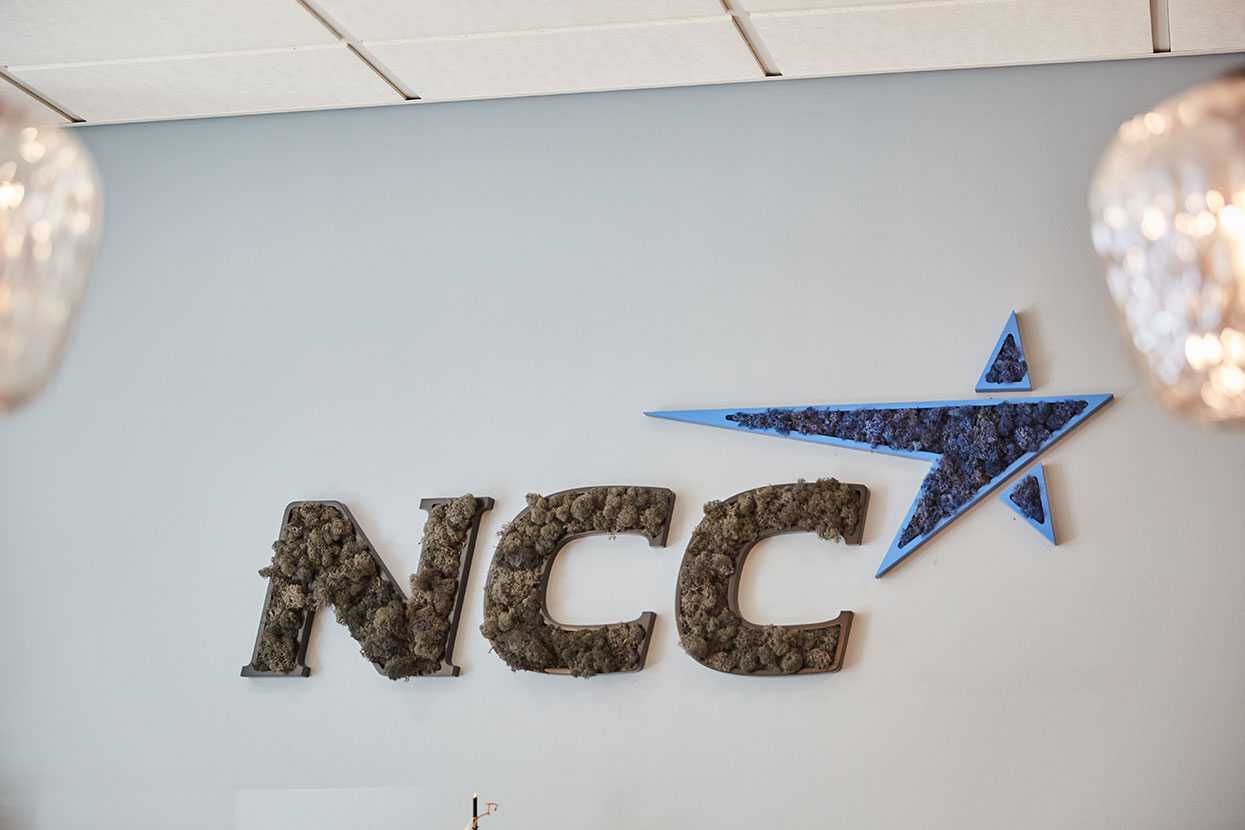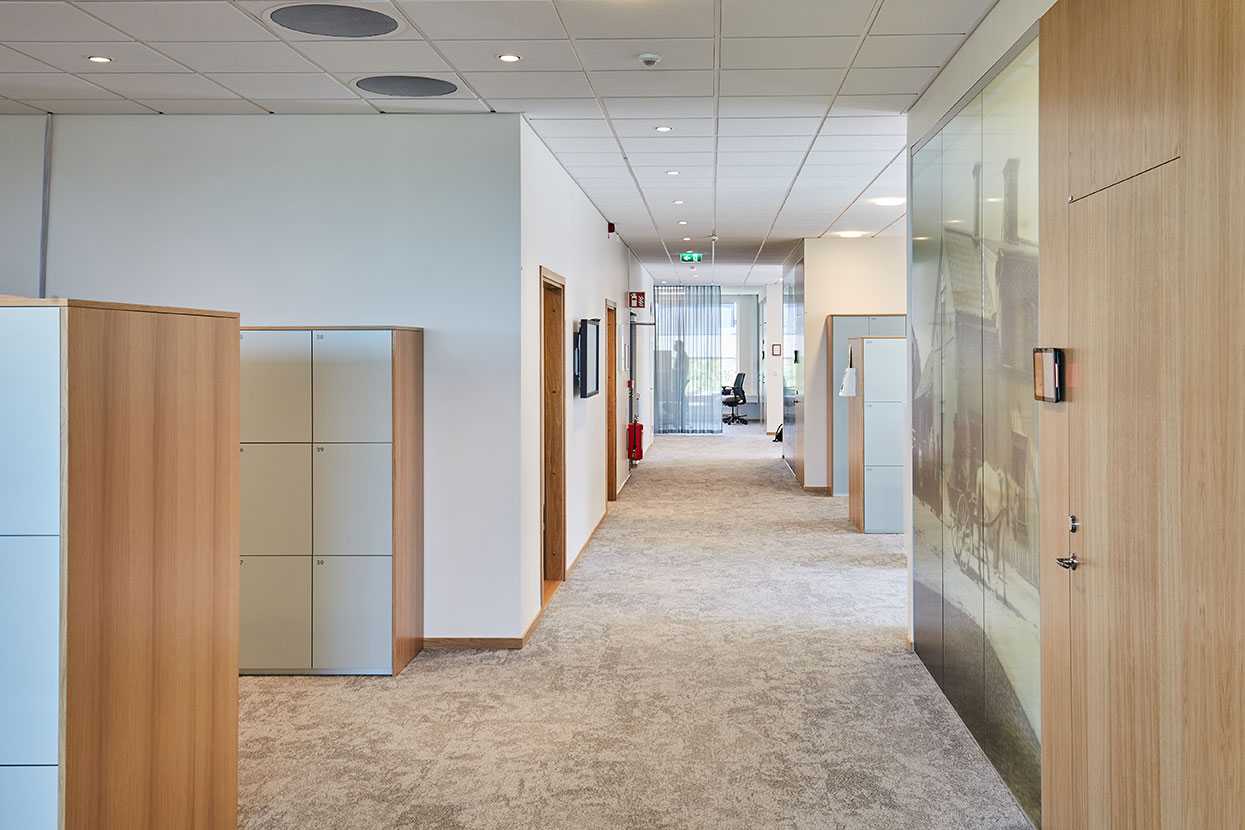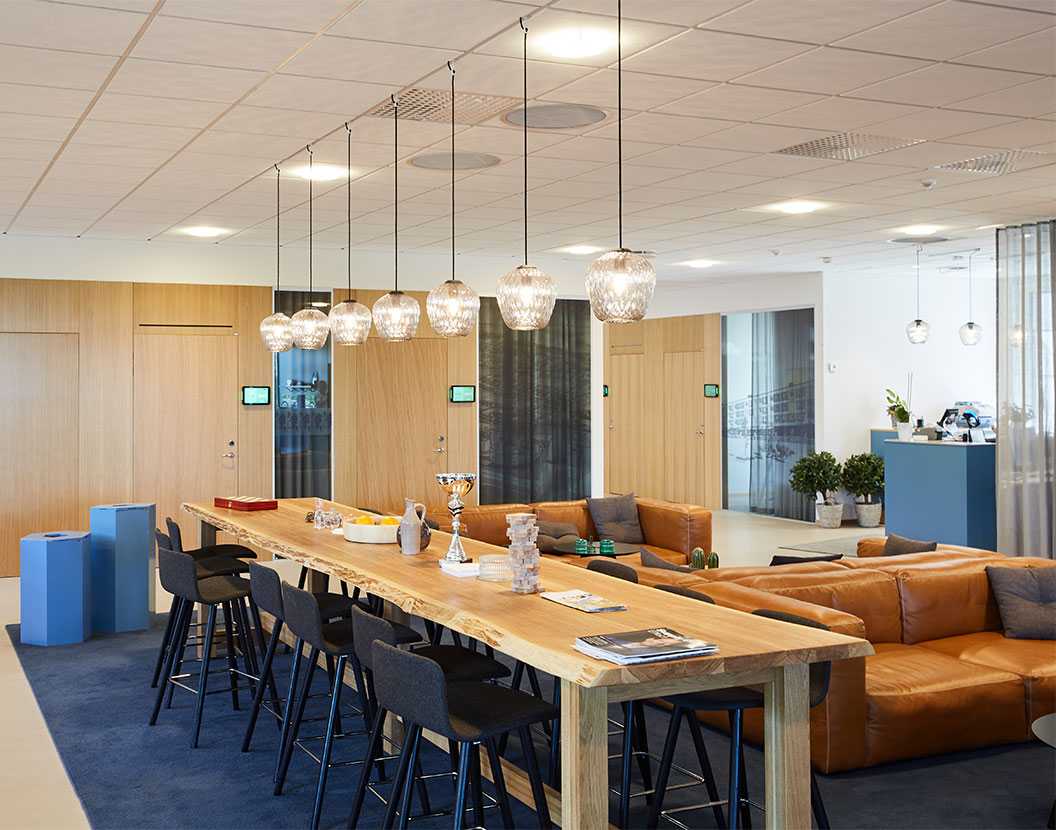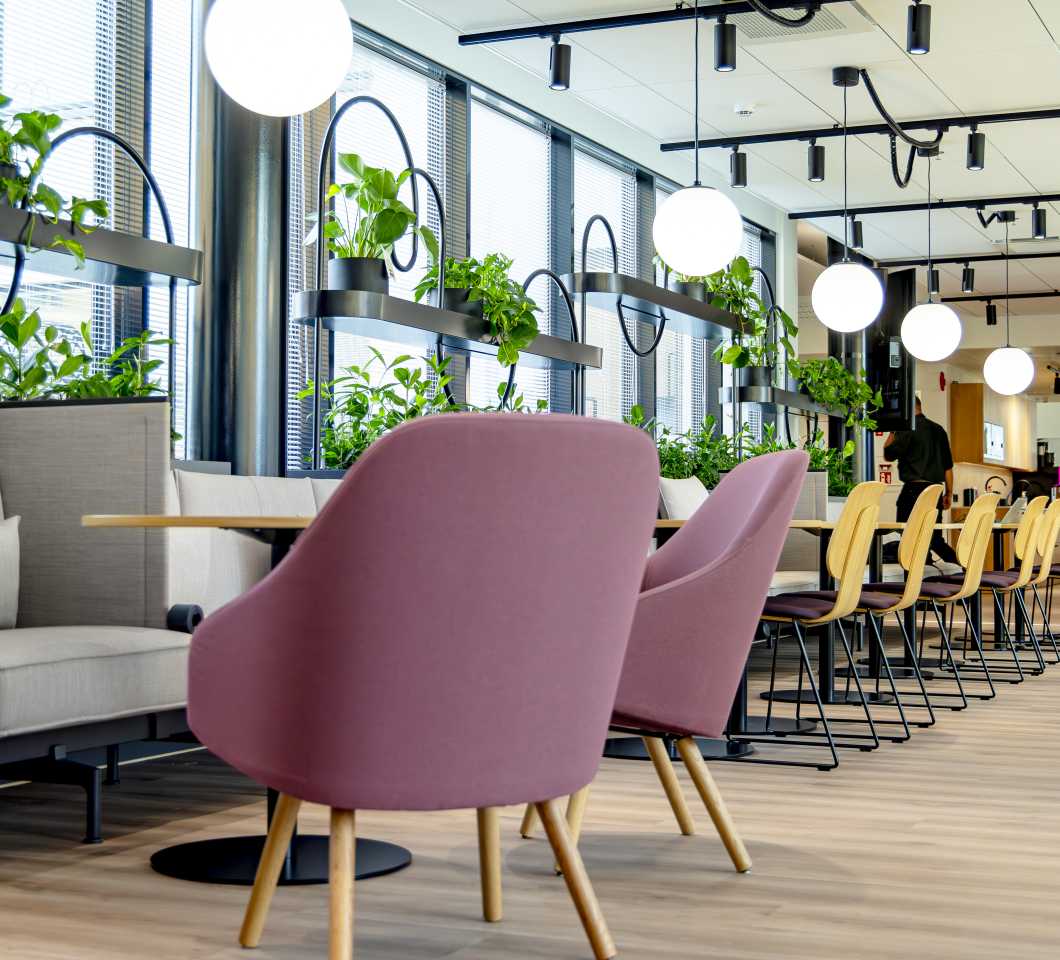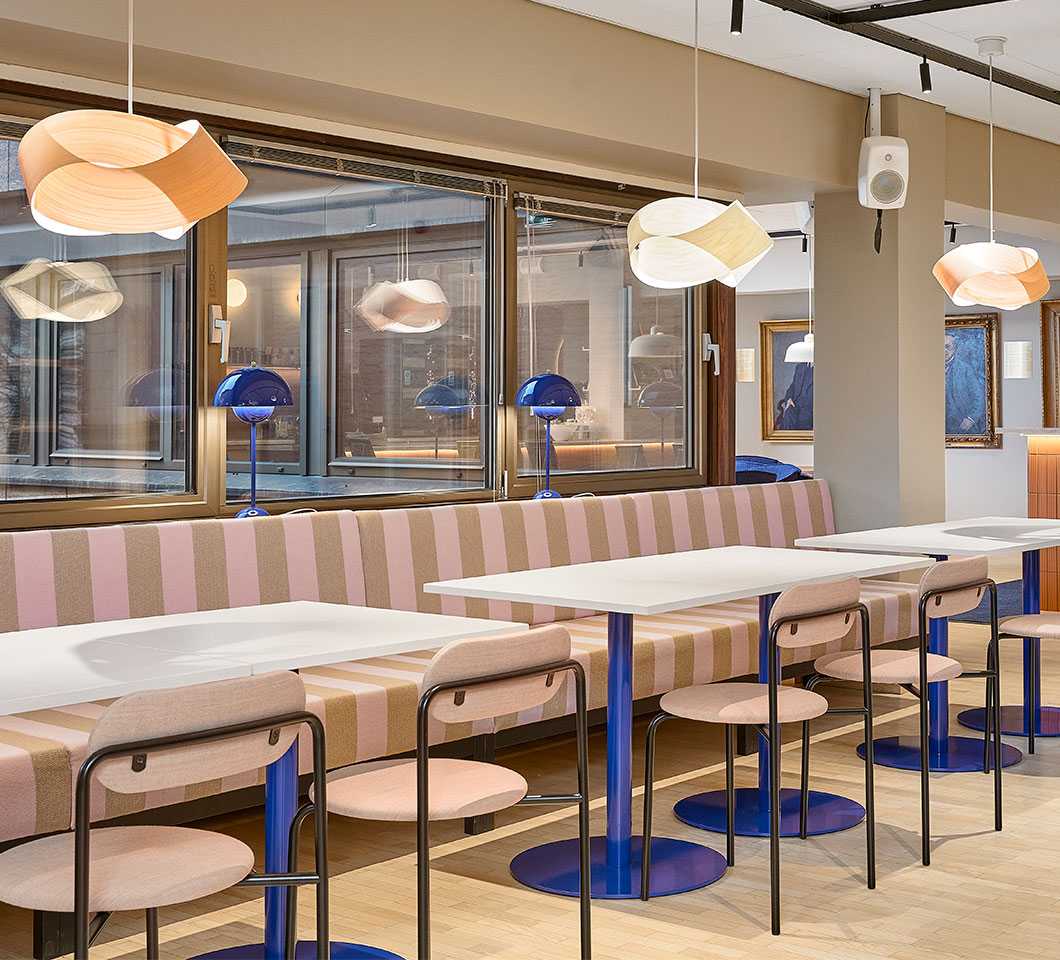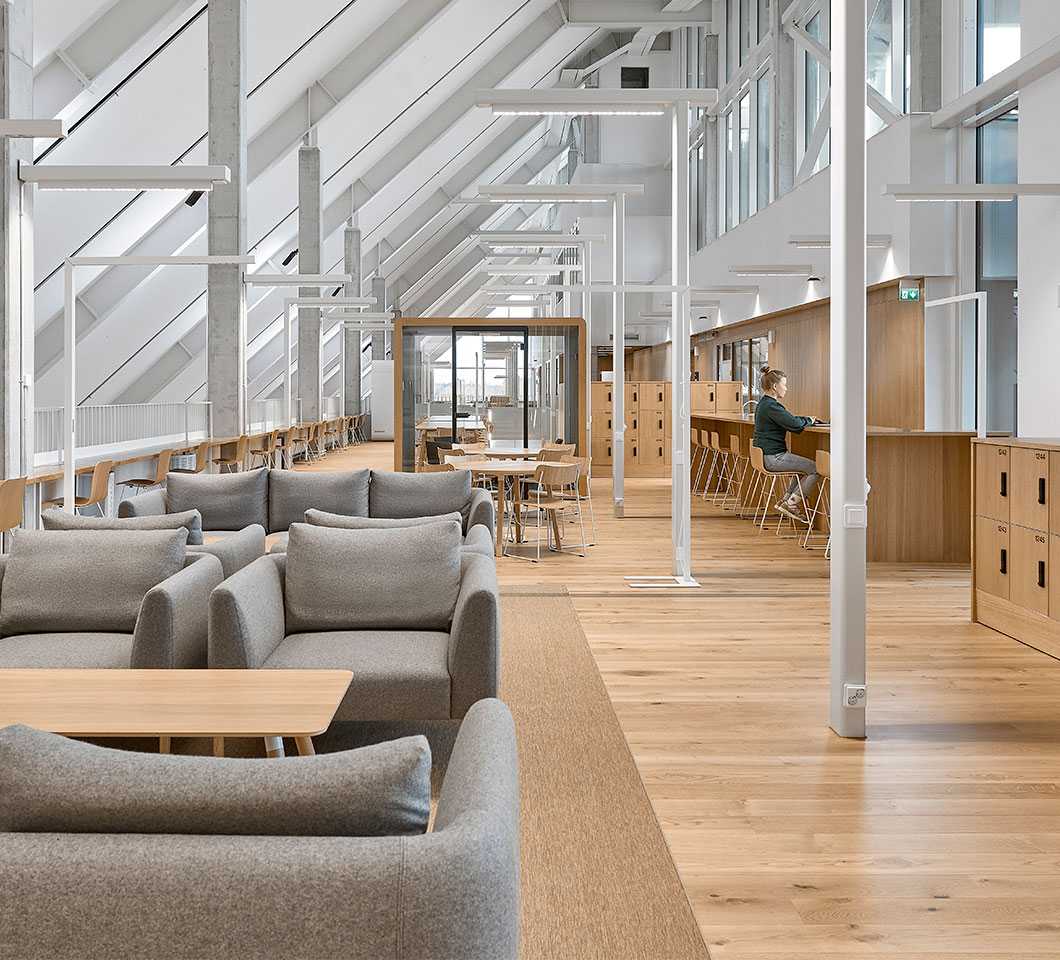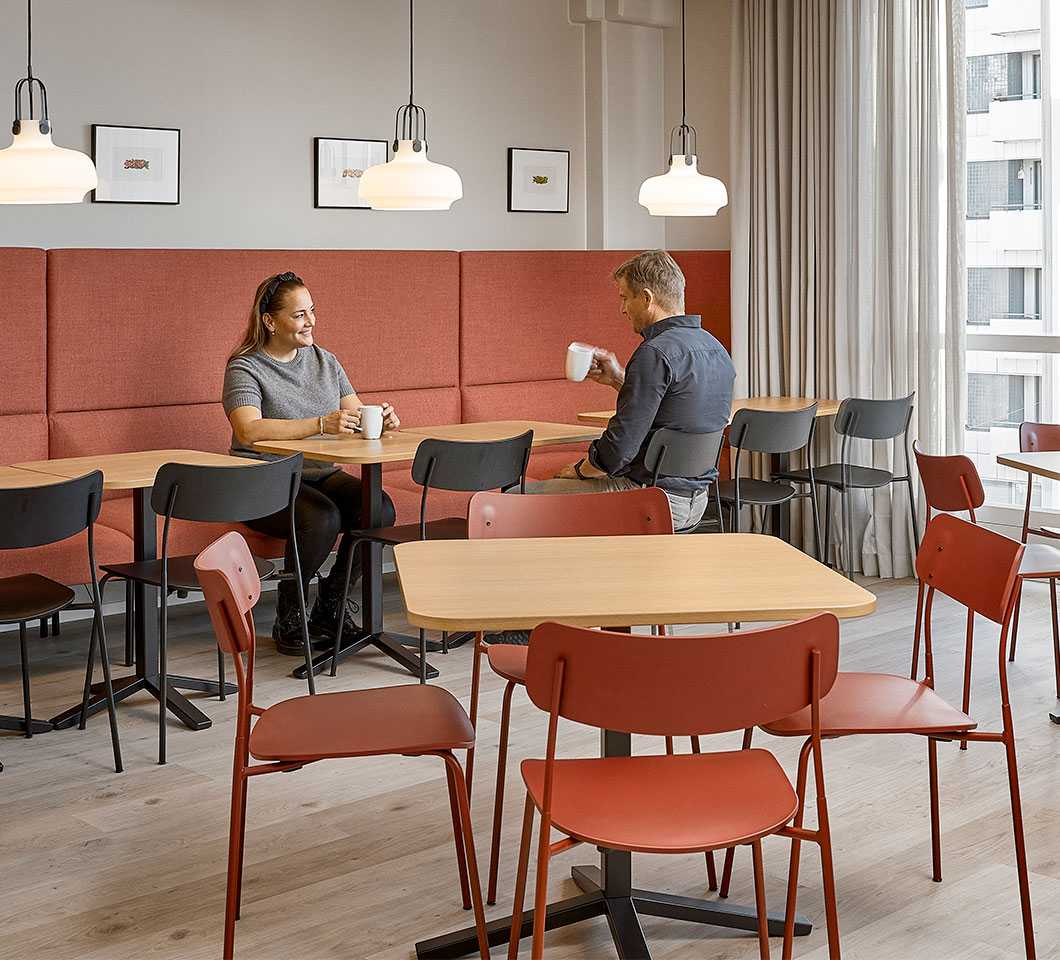Martela creates activity-based offices for NCC
In February 2019, NCC opened its new office in Uppsala. A few years ago, NCC had carried out a survey of how their offices were actually being used. “It turned out that the utilisation rate of the employees' rooms was only about 35 per cent. This was not a surprise as most of us spend a lot of time in meetings and out on projects. We simply didn't need individual rooms for everyone,” says Mattias Monbäck, head of department for NCC the Uppsala, Gävle and Dalarna region.
“We are now seeing a general trend towards more co-working,” continues Monbäck. “Several of the office projects we are working on for our property owners are being designed for co-working, which is an exciting trend. There is a growing need for more collaboration, both within and between companies. We have chosen activity-based offices to meet this challenge.” In fact, NCC's head office has also been turned into an activity-based office.
NCC in Uppsala also set a sustainability goal related to the office move. The target was to reuse 30 per cent of the existing furniture and equipment in the new premises. Some of the furniture was only a few years old and turned out to be well suited to the new surroundings.
The change supports NCC’s operations and identity
Equipped with these insights and with the employees involved at every step, NCC launched the process to transform its traditional offices to activity-based offices. With Martela as the main supplier, each office was redesigned in the company style with regard to the furnishings and colour scheme. In Uppsala, the interior design firm Indicum was also involved in the process.
“We emphasised a common concept, Nordic offices, which expresses our identity,” says Monbäck. “You can tell straight away that you are in an NCC office, just like you recognise certain stores or hotels from their interiors. It has been a great process, not least because Martela not only supplies furniture but also has a lot of knowledge and ideas on how to create effective and stimulating workplaces. We really enjoyed the whole planning process leading to the move.”
Some time after moving in, the company organised a workshop where they all walked around the offices together and everyone had a chance to say what was working well and what not so well. It turned out that they didn’t need as many areas for work requiring concentration, so two were converted to common areas. The most important thing is that everyone can sit with the project groups they are currently part of.
Successful results with user-centric spaces
The approximately 70 employees no longer have their own rooms. As they tend to work on several different projects all the time, they now have access to spaces created for group meetings and planning discussions, either internally or together with customers.
Removing the individual rooms did not mean reducing the total area of the offices. In fact, it was the opposite. Now there is plenty of room for different types of meeting places, including a large number of smaller meeting rooms for 4-6 people, while the number of large meeting rooms has been reduced as there is very little need for them now.
There is also room for storing personal items, lounge areas and so on. There is still an open-plan area and places for more private work requiring concentration, such as writing presentations or reports, where you can be without being disturbed. There are no mobile phones going off or people coming to talk to you.
“Being able to sit near the people you are working with for a while and also being able to move to spaces for work requiring concentration is clearly working better than expected,” says Monbäck. “It creates a genuine team feeling. What is more, it is appreciated by our customers. On the first floor we have something similar to a hotel lobby, with coffee machines and food, where customers are welcome to sit for a while before their meetings. This also works very well. Customers are happy to hold meetings here. Everyone feels welcome.”
“Our collaboration has been very successful,” says Christian Lippert, Key Account Manager at Martela. “NCC had really thought about what it needed and was well prepared. The employees’ involvement in the whole process was very impressive. From these starting points, it was easy to achieve a successful outcome.”
